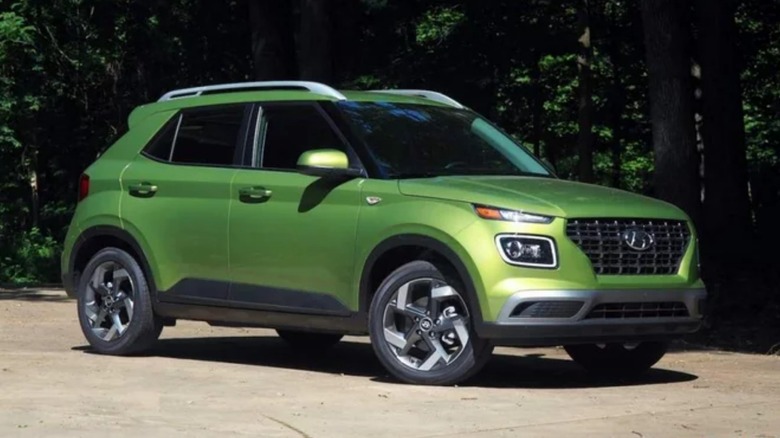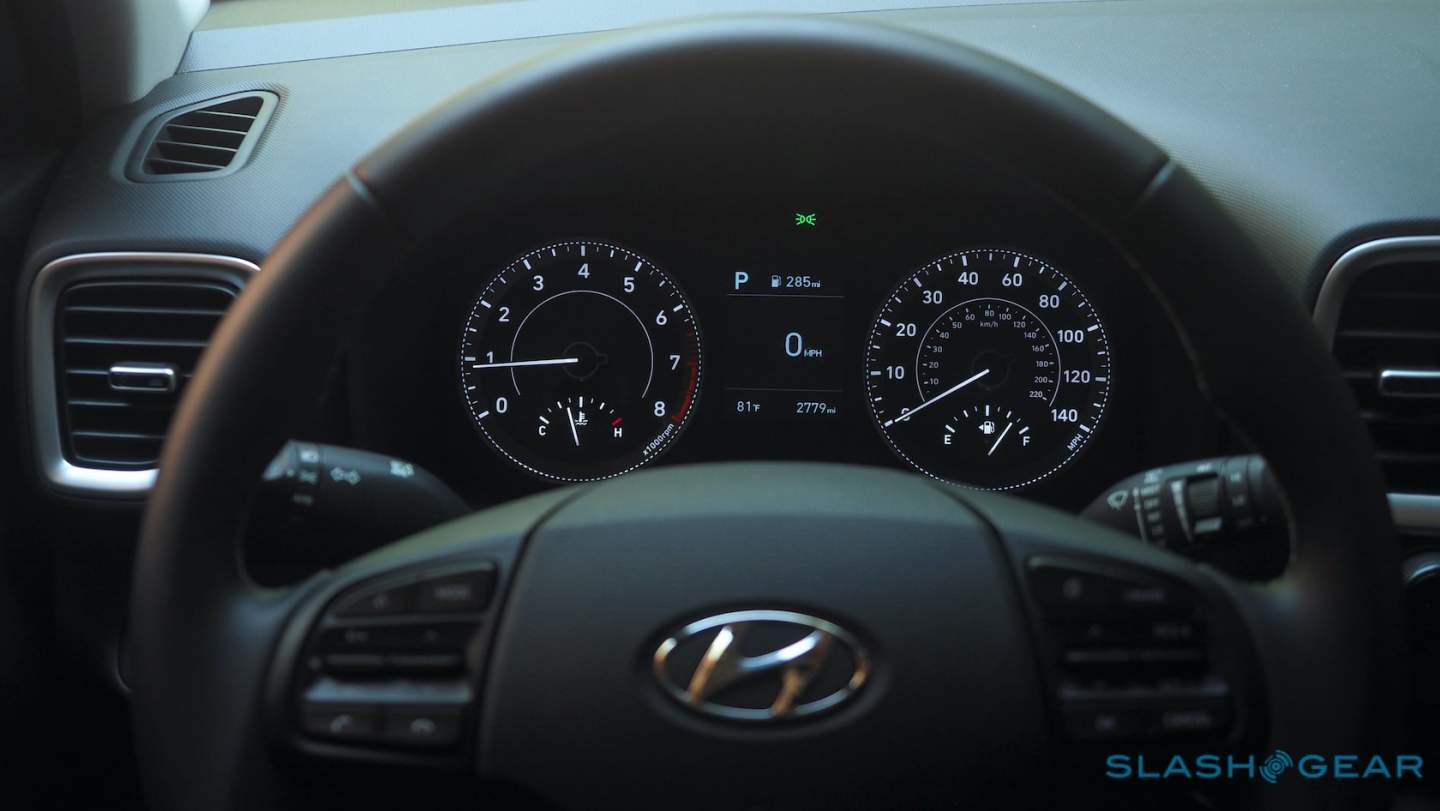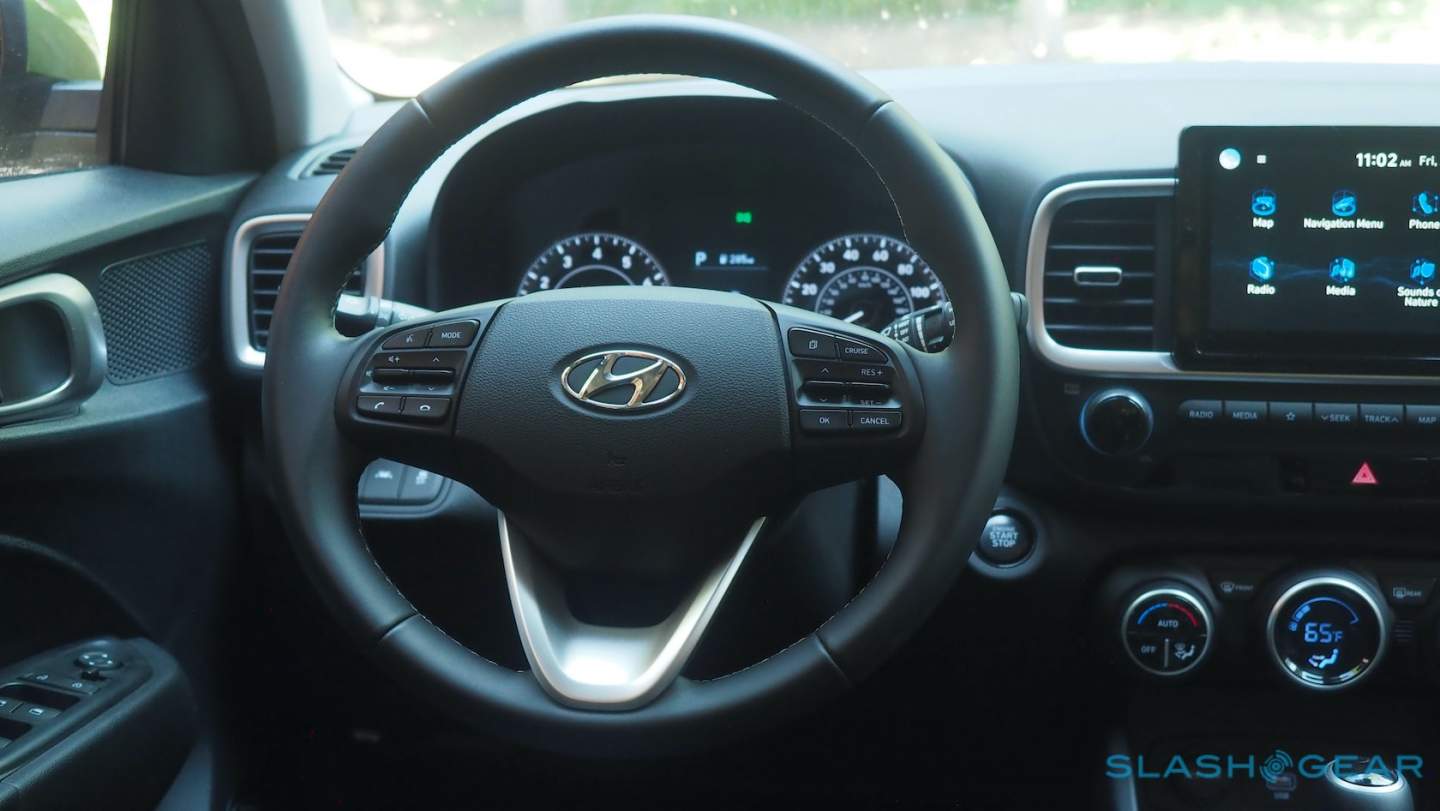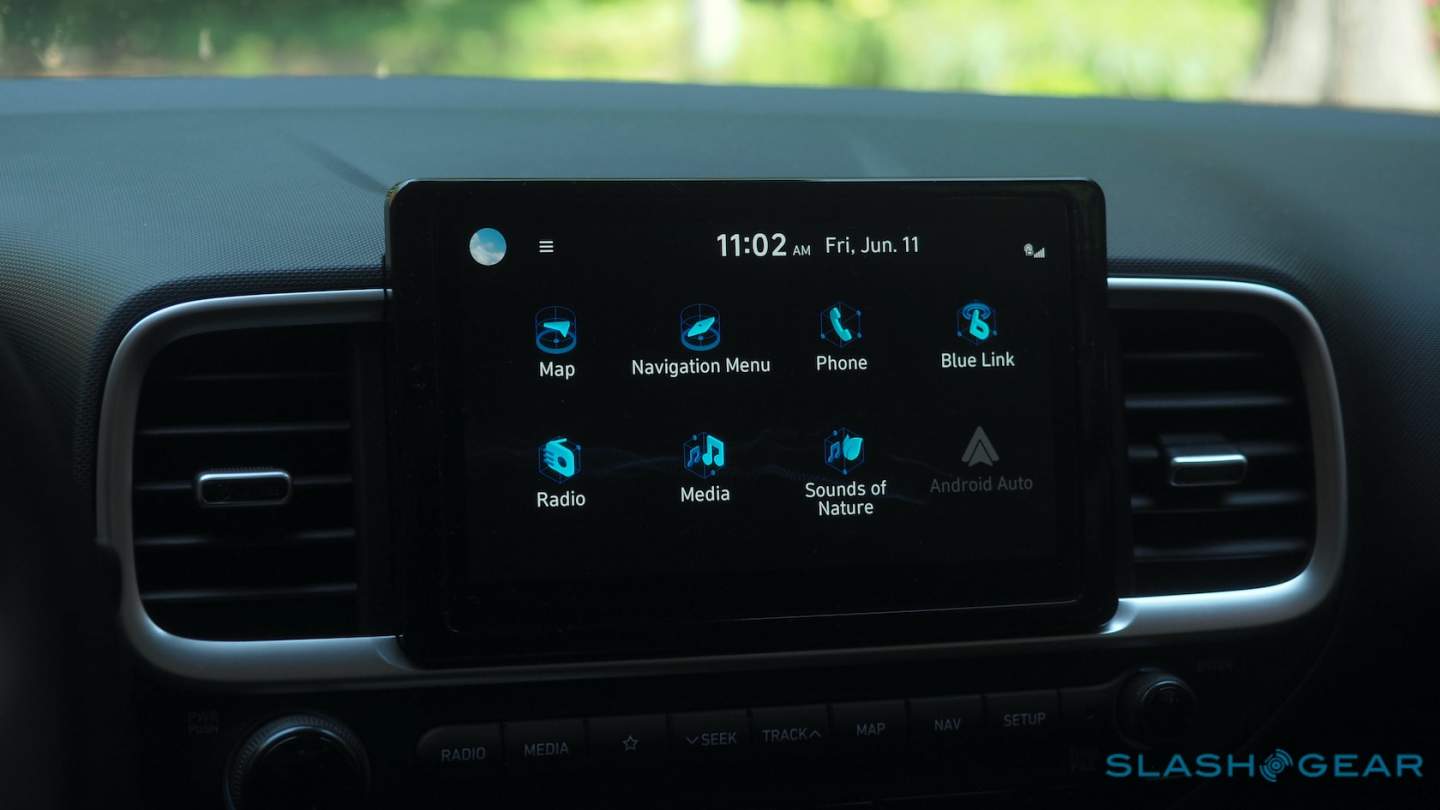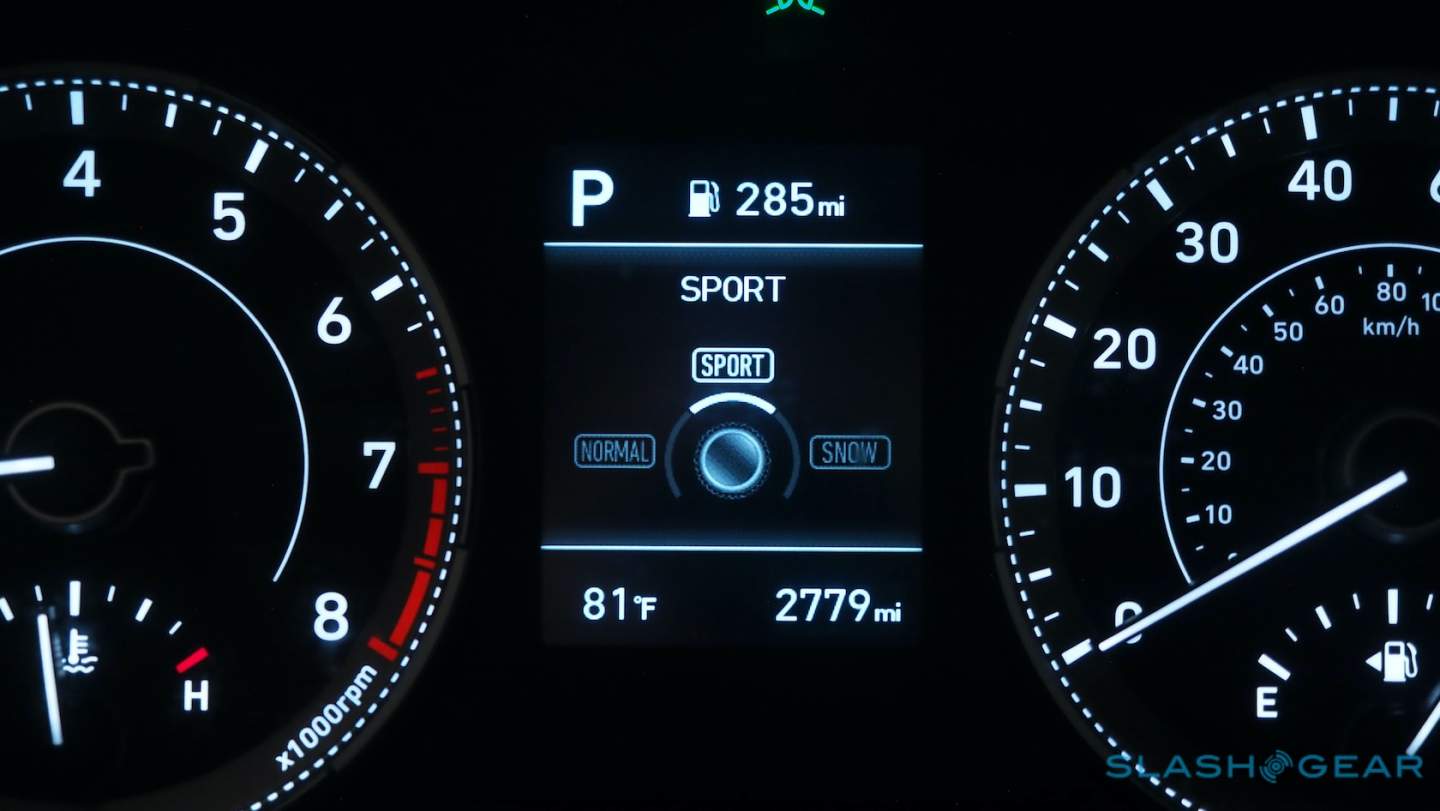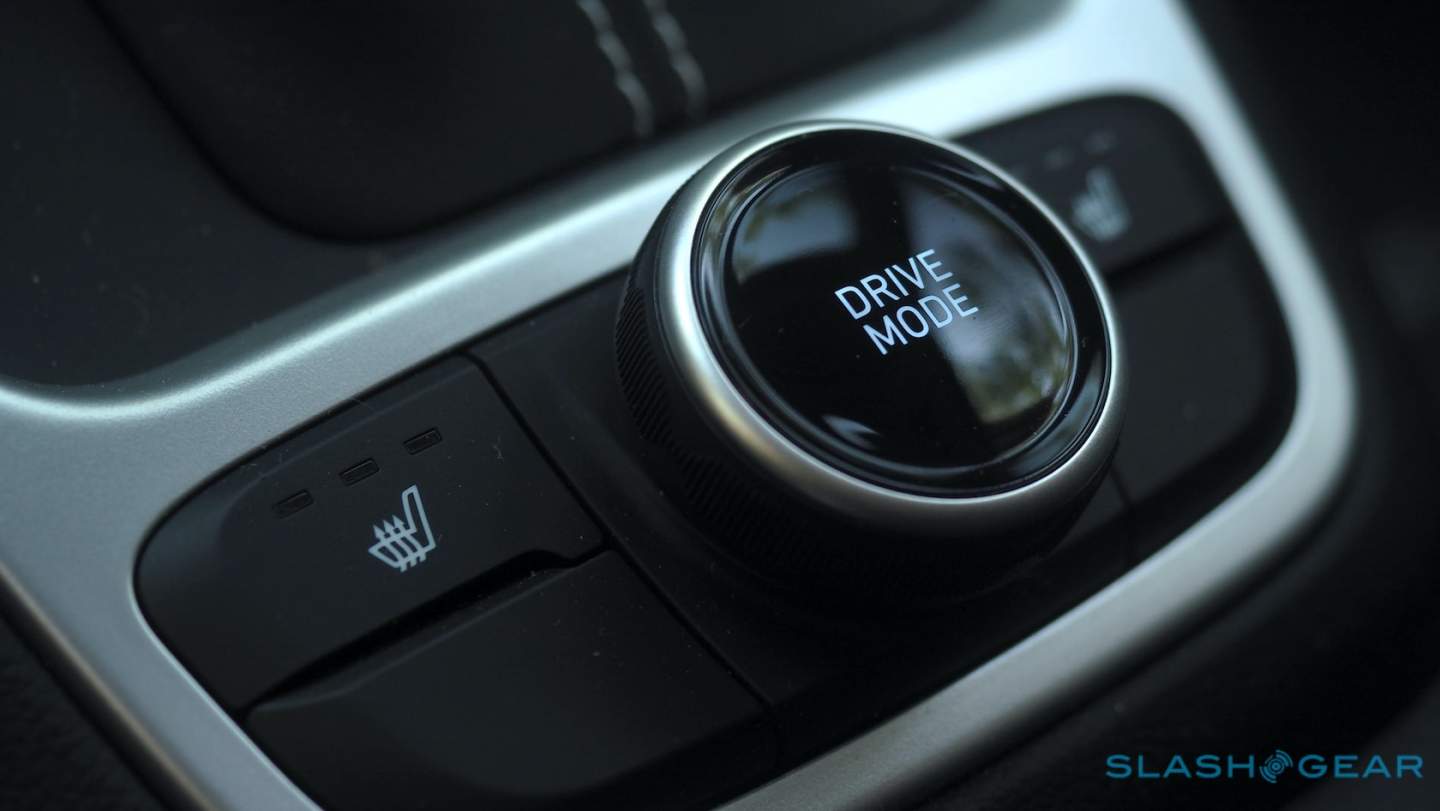2021 Hyundai Venue Review
- Aggressive pricing
- 1.6L engine and CVT are perky around town
- Spacious cabin with unexpectedly high safety tech levels
- Engine can feel weedy on the highway
- No AWD option
The 2021 Hyundai Venue isn't just considerably cheaper than the average new vehicle sold in the US, it's actually cheaper than the average used car price right now. At $18,750 (plus $1,185 destination) the diminutive crossover is a member of the shrinking list of sub-$20k new cars, and you'd be forgiven for assuming – as I did – that along the line something would have to give.
There are plenty of reasons why new cars have become more and more expensive over the past years. Increasing safety demands by regulators, an expectation of more equipment and more refinement from potential owners, and the rising cost of parts and materials all took their toll, and that was before a pandemic arrived and a chip shortage with it.
2021 Hyundai Venue In-Depth
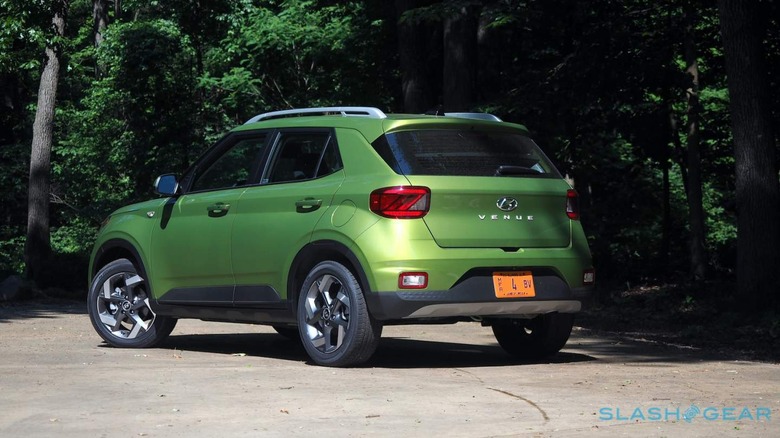
Now, I'll admit, this 2021 Venue SEL isn't quite the $20k version which Hyundai offers. With the $2,350 Premium Package and a lavish $155 for carpeted floor mats, it nudges the compact up to $23,490 including destination. That is, though, still less than the $25k+ Americans are currently paying on average for a used vehicle.
Having grown up in the UK, where smaller cars were the norm, a lot about the Venue feels both familiar and charming. Its 1.6-liter four-cylinder gas engine brings 121 horsepower and 113 lb-ft to the party, funneled to the front wheels via the continuously variable transmission. Hyundai used to offer an even cheaper manual version, but that's gone now; there's no all-wheel drive option either, despite the crossover-inspired looks.
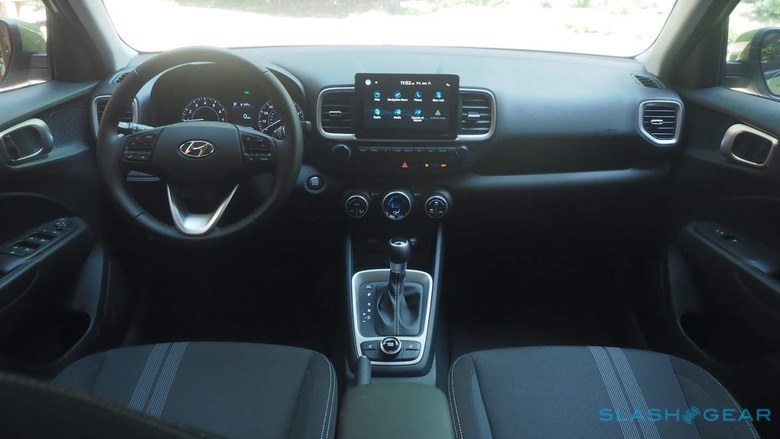
Despite that, there's an unexpectedly long list of standard equipment. The $20k Venue SEL gets 17-inch wheels, roof rails, an 8-inch touchscreen infotainment system with Apple CarPlay and Android Auto, single zone automatic climate control, a 60/40 split rear bench, remote keyless entry, and hill-start assistance. Even the steering wheel and shift knob are leather-wrapped.
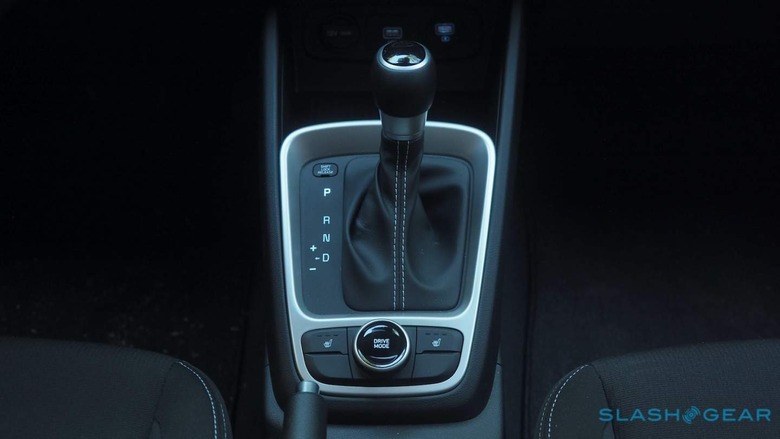
The safety features are arguably even more impressive: forward collision avoidance assistance with pedestrian detection, lane keeping assistance, and rear cross-traffic collision warnings all come standard across the board. SEL and top-spec Denim trims get blind spot warnings, too. Excuse me while I spare some side-eye for the German luxury automakers who charge extra for half of that list.
As for the warranty, that covers you for a healthy 5 years/60,000 miles, and there are 3 years/36,000 miles of complimentary maintenance. The Premium Package adds fancies like heated front seats and heated side mirrors, LED lighting front and rear, push-button start, navigation for the infotainment, SiriusXM, a power sunroof, and Hyundai's Blue Link connected services system.
Other automakers have tried cheap, small cars, and usually fallen foul of cabin plastics reminiscent of chocolate box liners or lumpen exterior styling. With its shield-shaped grille and squinting headlamps, the Venue seems like it's aping Hyundai's bigger SUVs, and not in a bad way. It doesn't fall victim of that "just escaped from Toy Town" aesthetic that many in the segment struggle with.
Inside, things feel surprisingly solid. Nobody will confuse the Venue for one of Hyundai's more upscale models, never mind a Genesis, but the switchgear is solid and the infotainment system easy to use. There are plenty of USB ports, the climate control is straightforward, and though the whole thing is fairly sober – with only some matte silver plastic trim to attempt to lighten the mood – it feels like it would hold up to family use.
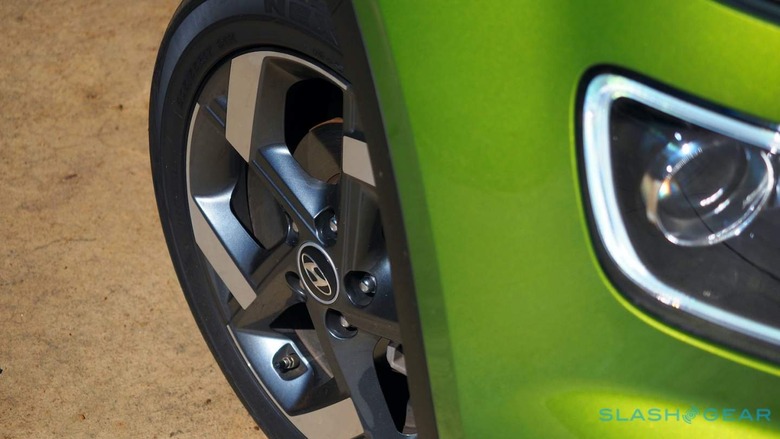
Around town, the dinky engine plays its perky strengths well. There's enough verve to have you zipping away from the lights, and the compact footprint makes both traffic darting and maximizing parking opportunities easy. There's a Sport mode which leaves the CVT a little more urgent, though temper your expectations there.
Out on the highway, things are somewhat less convincing. Outside of typical urban speeds the sluggish acceleration means overtaking maneuvers can be fraught. The Venue just doesn't feel as planted as you'd expect from something with crossover billing. For economy, you're looking at 30 mpg in the city, 33 mpg on the highway, and 31 mpg combined. At least, that's what the EPA expects; my own mixed driving landed in the high 20s.
Rear bench up, there's 19 cu-ft of space for cargo. That expands to 32 cu-ft with the seats down. Both front and rear passenger space is plentiful, and visibility is good too.
2021 Hyundai Venue Verdict
It's a little astonishing, not only just how much Hyundai has managed to squeeze into the Venue for its price, but how it has done so without leaving the whole thing feeling cheap. Yes, there are places where you'll find hard plastics, and no you're not going to mistake the Venue for some of the more lavish crossovers on the school run, but it's very hard to argue that most drivers need more than this roughly $20k Venue SEL.
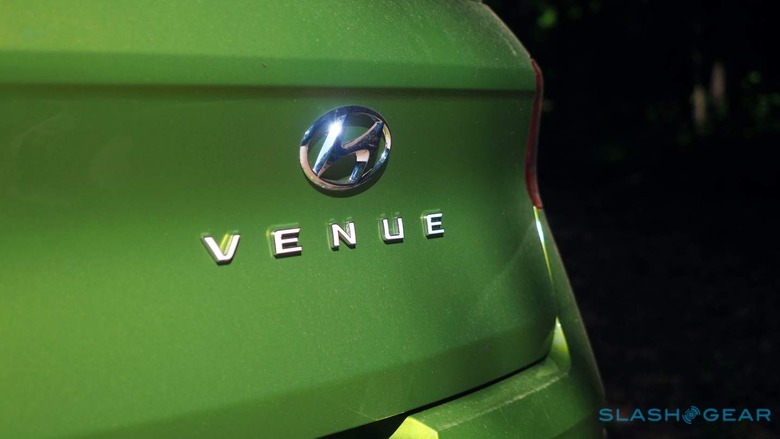
Those who should look elsewhere include anybody wanting electrification, anyone needing the extra winter traction of all-wheel drive, and those who spend more time on the highway than around town. All areas where the Venue's shortcomings and omissions are most glaring. Urbanites needing affordable wheels, a solid and spacious cabin, and a great warranty, though, might find more to like at Hyundai's dealership than in trying to trawl the used car classifieds.
